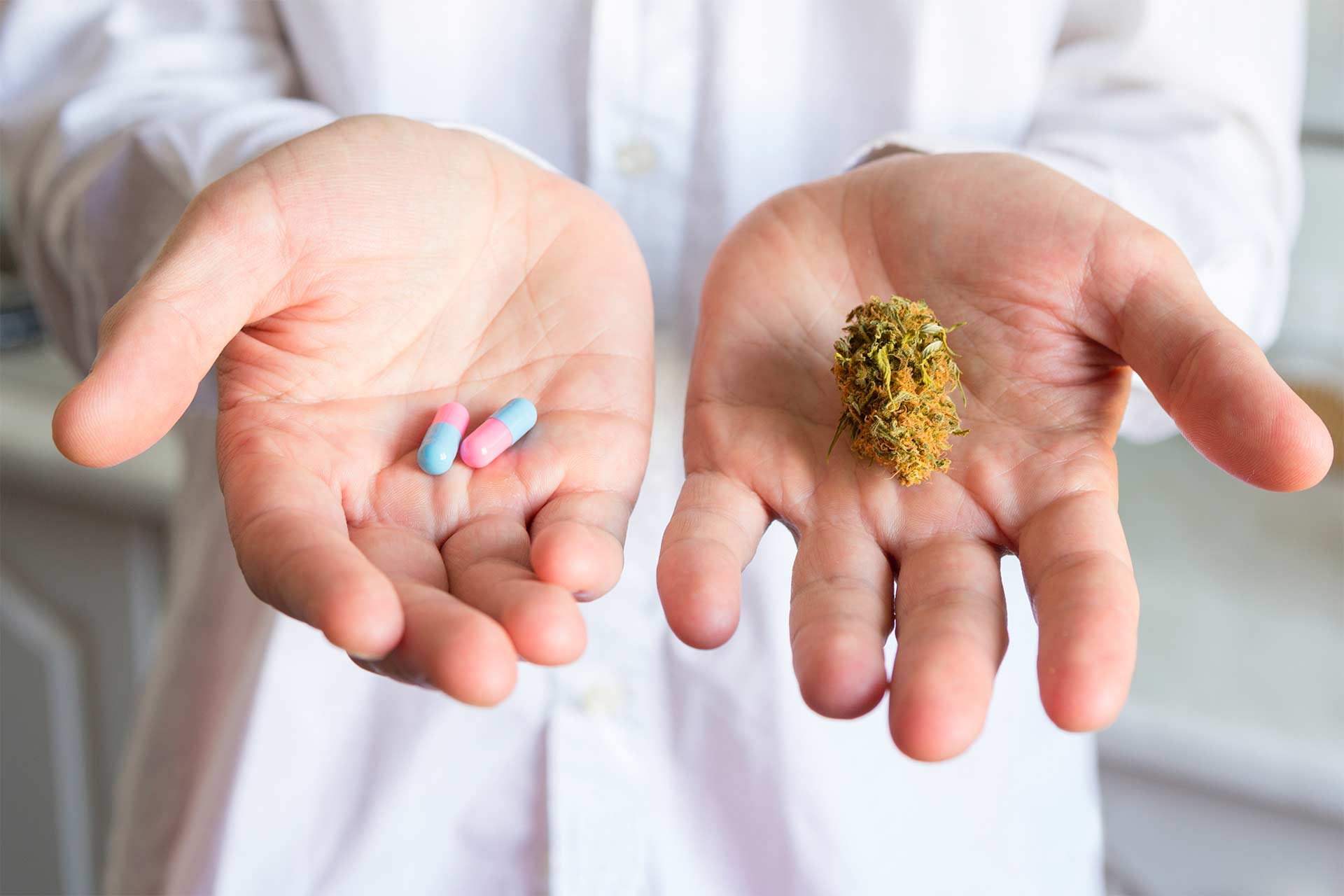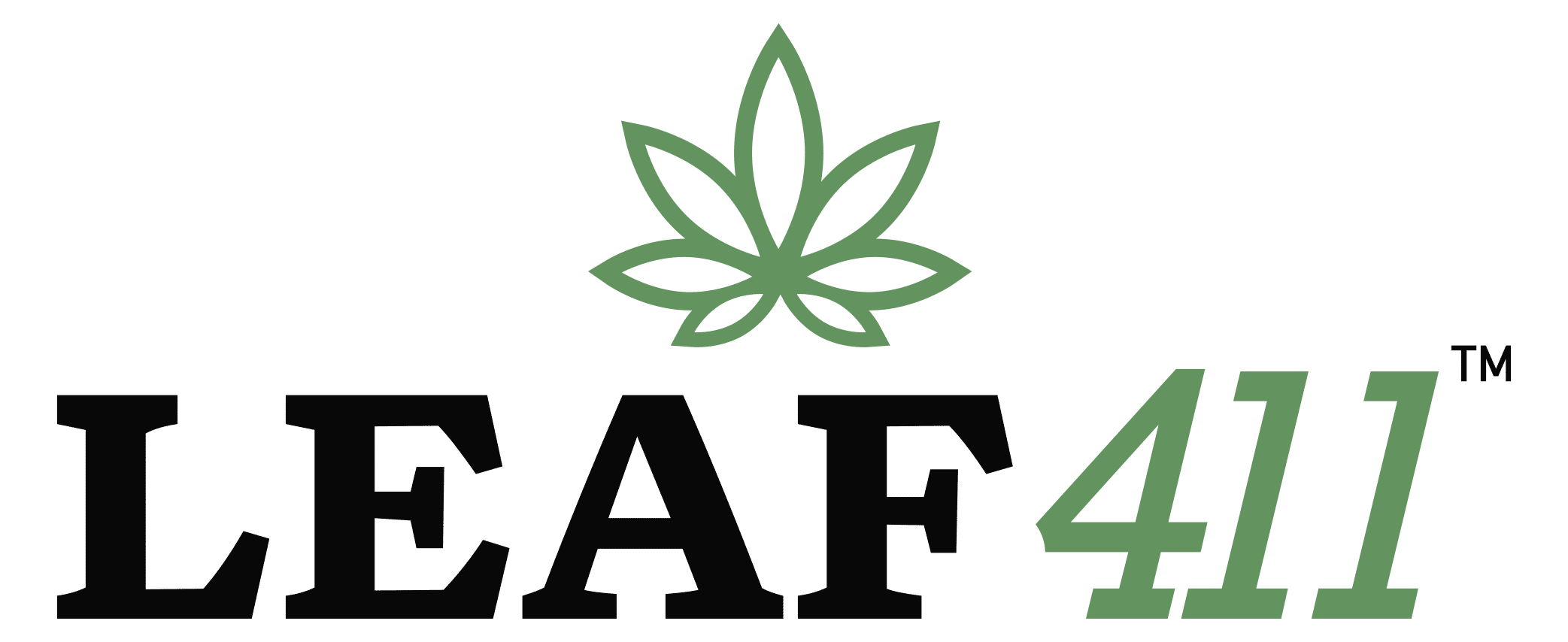By Katherine Golden, RN – Founder and CEO of Leaf411
“Should I get a medical marijuana card?” We hear that question a lot on the Leaf411 cannabis nurse hotline, as callers seek out the best way to access legal cannabis.
We can help you sort out your options based on your needs as well as what options exist where you live. Check out our Leaf library for your state’s current cannabis laws.
Is Legal Recreational Marijuana an Option for You? Then You Might Not Need a Med Card
Many of our callers are just starting out using cannabis and only require small doses of THC. Lower dose products are more easily found in recreational dispensaries. You don’t need a medical marijuana card (often called an “MMJ card” or “med card”) to visit adult use or recreational (rec) dispensaries. However, you’ll need a state-issued ID as proof that you are 21 or older.
Also, it’s worth noting that cannabidiol (CBD hemp) containing less than 0.3% THC is federally legal. CBD hemp (may also CBDa, CBN, and CBG) products are available over-the-counter and online in nearly every state, no med card required! Check out a list of Leaf411 nurse vetted Hemp members here.
If you’re just starting out with cannabis and live in a fully legal state that has both rec and medical marijuana, we suggest reaching out to a cannabis-trained clinician first for advice on the best routes, ratios and products. Our Leaf411 hotline is the perfect first-step resource!
In many cases, these products will be available to you without a med card, saving you both the time and cost of applying for a card.
David Gordon, MD, a Leaf411 advisory board member and integrative medicine practitioner notes that, “In Colorado, a lot of the products that we might use for medicinal purposes are only available on the rec side. Companies aren’t making as many products for the medical side because it’s not as profitable.”
While it can be challenging to find products made specifically for the medical market, there are brands that do a great job creating products specifically for medical use. One of our supporting members, Wana Brands, is a great example.

Understanding Med Card Qualifications
Before we get into cases when a med card makes sense, it’s important to talk about the qualifications for getting a medical marijuana card. Covered conditions vary from state to state. For example, in Colorado, the state list includes specific disabling or debilitating conditions. Oklahoma, on the other hand, is one of the least restrictive states. Their law leaves it up to the doctor to determine if cannabis is a good treatment option.
Check this link for an updated list of different states’ qualifying medical conditions.
When a Med Card Makes Sense
Some states only legalized medical marijuana, not recreational use. If you live in one of these states, then your only option for accessing legal cannabis is by qualifying for a med card.
Med cards are also the only option for people under the age of 21 to access legal cannabis.
It’s important to know what a med card gets you, as well as what protections it does not provide (you might be surprised!).
What a Med Card Provides in Some States
- Access to products at lower cost than recreational dispensaries
- Lower sales taxes when buying at a medical dispensary
- Higher doses and higher limits on how much you can buy in a day
- The ability to legally grow your own cannabis for personal use in some (but not all) states
What the Med Card Doesn’t Do
It’s important to remember that all marijuana—medical and recreational—remains federally illegal, even when legalized at the state level.
- A med card doesn’t give you the right to smoke in your rental if prohibited by lease
- A med card doesn’t prevent your employer from firing you for positive drug test results.
- Holding a med card may disqualify you from certain jobs or impact your career or educational options, though many states are also enacting legislation on this front.
Other Considerations Before Getting a Med Card
Will a med card restrict your right to own firearms? The answer is tricky.
Cannabis is federally illegal, and the feds oversee gun licensing and ownership. By the letter of the law, anyone using a federally illegal drug, or addicted to an illegal drug, is prohibited from owning or buying firearms.
If you’re buying a gun, you typically must complete a background check—specifically, the Firearms Transaction Record, or Form 4473. This form includes a question specific to marijuana use, and reinforces the federal prohibition, asking:
Are you an unlawful user of, or addicted to, marijuana or any depressant, stimulant, narcotic drug, or any other controlled substance?
Warning: The use or possession of marijuana remains unlawful under Federal law regardless of whether it has been legalized or decriminalized for medicinal or recreational purposes in the state where you reside.
In other words, if you answer truthfully (and you should—lying on Form 4473 is considered a felony offense!), then your background check may fail.
At Leaf411, we’re nurses, not lawyers. We recommend that you consult with an attorney if you have concerns about whether your cannabis use will impact your right to own or buy firearms.
A number of law firms now specialize in marijuana law. In fact, our board member David Wunderlich, Esq., Senior Attorney at McAllister Garfield, P.C., played a key role in improving Colorado’s laws around medical marijuana, and regularly speaks on cannabis and hemp issues.
Medical marijuana use may also impact state-administered public assistance benefits such as Temporary Assistance to Needy Families (TANF) in states that drug test welfare recipients. Interestingly, in Missouri, having a med card can actually protect your benefits. However, the rules vary from state to state and are frequently being updated. We strongly suggest you ask your social service agency whether holding a med card would impact your public assistance benefits.
How to Apply for a Med Card
You’ve weighed the pros and cons, as well as options available in your area, and have decided to get a med card. Where do you start? Search online using “med card” and your state to find state-specific information for obtaining a medical card in your area.
- Check your eligibility, making sure you have a qualifying medical condition.
- Confirm any special requirements, such as if you’re applying as the legal representative of another adult or someone under 18.
- Note the process for obtaining a card, including required fees. In some cases, discounts may be available for specific patient groups. For example, Oklahoma provides a discount to 100% disabled veterans.
- Find a doctor who provides medical marijuana evaluations. Your regular primary care provider may provide this service, though many primary care doctors may be unfamiliar with the med card evaluation process.

How a Med Card and a Prescription Are Different
You may think that the med card evaluation process will be a lot like getting a prescription from your primary care doctor. In fact, that’s rarely the case! The doctor’s certification simply tells the state that you qualify for a med card based on their assessment of your health history and conditions. It doesn’t tell you which products to start with or how much to take.
When you schedule a med card consultation, it’s worth asking whether the provider provides guidance on using cannabis to treat your health condition. If they do not, you may want to seek out a cannabis doctor who provides this service, such as Dr. David Gordon, who we recently interviewed or check out the Leaf411 vetted cannabis clinician on this page.
You can also reach out to a resource like the cannabis-trained nurses at Leaf411 for suggestions on where to start.
A Note for Patients Living in States Without Legal Cannabis
Cannabis containing over 0.3% THC remains completely illegal in 17 states. However, federally-legal CBD hemp products containing less than 0.3% THC are legal in almost all states. Full spectrum CBD hemp products contain many beneficial plant compounds shown to impact a variety of health conditions. In fact, even in states with legal cannabis, we sometimes suggest starting with CBD hemp products for certain health concerns.
At Leaf411, our cannabis nurses emphasize the safe legal use of cannabis. When you call, we listen to your specific needs and concerns. We will help find options and guide you to resources that best fit your lifestyle and health goals.
The Leaf411 cannabis nurse hotline, chat and scheduled nurse guidance call services provide education and directional support to the general public about the safe use of legal cannabis. We partner with select business members who meet our rigorous standards to extend our education and outreach efforts.
